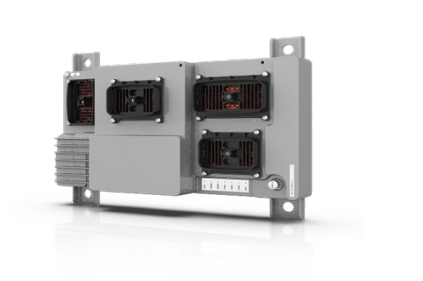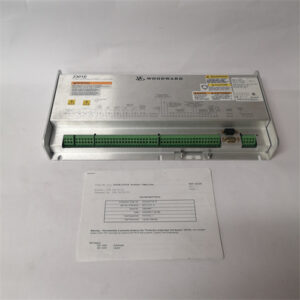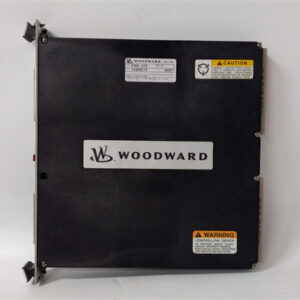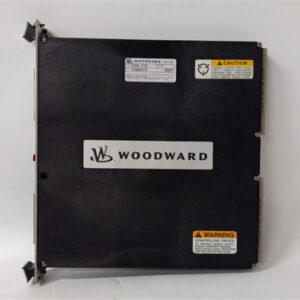الوصف
The Woodward 8280-4403 is a sophisticated Large Engine Control Module (LECM) from the E6 series. It’s designed for advanced management of large industrial internal combustion engines and is configured as a 3-stack system with extensive input/output capabilities for detailed monitoring and precise combustion control.
WOODWARD 8280-4403: LECM E6 Generic Control (3-Stack: Main; AUX, EID)
This high-performance LECM is engineered to meet the demanding requirements of large industrial engines, providing comprehensive control for optimal performance, efficiency, and reliability, including advanced diagnostics.
Product Overview
- Product Type: Large Engine Control Module (LECM) / Electronic Control Unit (ECU)
- Manufacturer: Woodward
- Series: E6 / LECM
- Function: This “Generic Control” in a “3-Stack” modular system consists of a Main module and two additional Auxiliary (AUX) modules. Its core capabilities are comprehensive monitoring (specifically for knock and temperature) and precise control over ignition or fuel injection.
Configuration & Key Capabilities
The 8280-4403’s 3-stack configuration provides a robust set of I/O:
- Main Module: This is the central processing unit for overall engine control.
- Auxiliary (AUX) Module: This module provides additional sensor inputs, including:
- 10 Knock Inputs: Crucial for sophisticated, per-cylinder knock detection to protect gas engines from detonation and optimize their operation.
- 14 Thermocouple (T/C) Inputs: Essential for monitoring individual cylinder exhaust gas temperatures (EGTs), aiding in cylinder balancing and identifying combustion issues.
- Electronic Ignition/Injection Driver (EID) Module: This auxiliary module offers numerous outputs for precisely controlling either ignition coils (for spark-ignited gas engines) or fuel injectors (for diesel or dual-fuel engines).
- 20 Driver (DRVR) Outputs: These outputs are designed to accurately control up to 20 individual ignition coils or fuel injectors, making this module suitable for large, multi-cylinder engines requiring individual cylinder control.
Detailed Description
The Woodward LECM series, including the 8280-4403, offers a powerful and flexible control platform for demanding large engine applications.
Key characteristics include:
- Advanced Hardware Architecture: It features a robust processor and extensive, high-speed, and precise I/O, vital for complex real-time calculations involved in combustion management and accurate ignition/injection control.
- Modular and Scalable: The “3-Stack” design allows for highly customized control and diagnostic capabilities for various engine sizes and complexities. The rich set of I/O (knock sensors, thermocouples, and numerous drivers) makes it highly capable for sophisticated engine management.
- Comprehensive Engine Control Integration: This unit seamlessly integrates with other Woodward components (like fuel metering devices and actuators) to form a complete engine management system. This includes control of engine speed, load, air/fuel ratio (for gas engines), advanced diagnostics, and critical engine protection functions.
- Enhanced Diagnostics and Optimization: The inclusion of knock and thermocouple inputs, combined with the precise EID, provides detailed insight into the combustion process. This data enables:
- Optimizing combustion efficiency and reducing fuel consumption.
- Minimizing harmful emissions by fine-tuning combustion.
- Proactive maintenance by identifying potential issues.
- Real-time adjustments to engine parameters based on actual combustion feedback.
- Communication: LECM modules typically offer robust communication options like Ethernet (for service interface, HMI/PLC integration via Modbus TCP/IP, remote diagnostics, and IIoT capabilities), CAN (for reliable communication with other engine components and external systems like J1939), and Modbus (for integration with SCADA or plant control systems).
- Rugged Design: Built to withstand extreme industrial environments, including high vibrations and wide temperature ranges, ensuring long-term reliability.
Applications
The Woodward 8280-4403 LECM E6 Generic Control is primarily used in applications involving large reciprocating engines where advanced monitoring, precise control over combustion events, and detailed diagnostics are critical:
- Power Generation: For engine-driven generator sets (gensets) that require maximum efficiency, minimal emissions, and high reliability, particularly for gas engines needing precise ignition and knock control.
- Oil & Gas: For engines driving compressors or pumps in pipeline and upstream/midstream operations, where continuous performance, fuel economy, and precise control are essential.
- Industrial Prime Movers: In various industrial processes that rely on large gas or diesel engines, benefiting from sophisticated monitoring and individual cylinder control.
- Engine Development & Testing: Valuable in research and optimization due to its high-resolution diagnostic capabilities.
Compatibility and Replacement Notes
It’s important to note the current status of the 8280-4403:
- Obsolescence: The 8280-4403 belongs to the 723, 723+, and 828 product line, which Woodward has officially inactivated (End-of-Life). This decision was made primarily due to component obsolescence. This means direct sales and new production of the 8280-4403 are discontinued. While limited repairs might have been supported based on parts availability until September 2024, as of July 2025, this support period has likely ended or is extremely limited.
- Replacement: Woodward offers newer product lines as replacements for the older 723, 723+, and 828 platforms. These typically include:
- LECM SA (Stand-Alone) Main board variant: This modern, powerful base unit can be paired with LECM I/O expansion modules to replicate or exceed the comprehensive functionality (including knock, thermocouple inputs, and multiple ignition/injection drivers) of the 8280-4403.
- Flex500: A highly flexible and modern control platform that supports extensive I/O and custom control logic for advanced engine management.
- 2300E: Another electronic control option that may be suitable for sophisticated control and diagnostics, depending on specific application requirements.

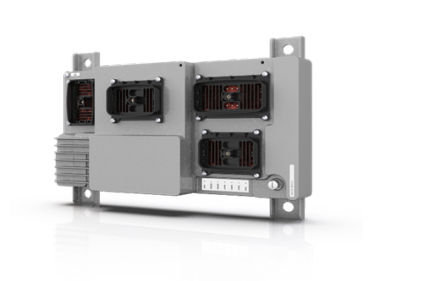

 +86 15340683922
+86 15340683922 +86 15340683922
+86 15340683922